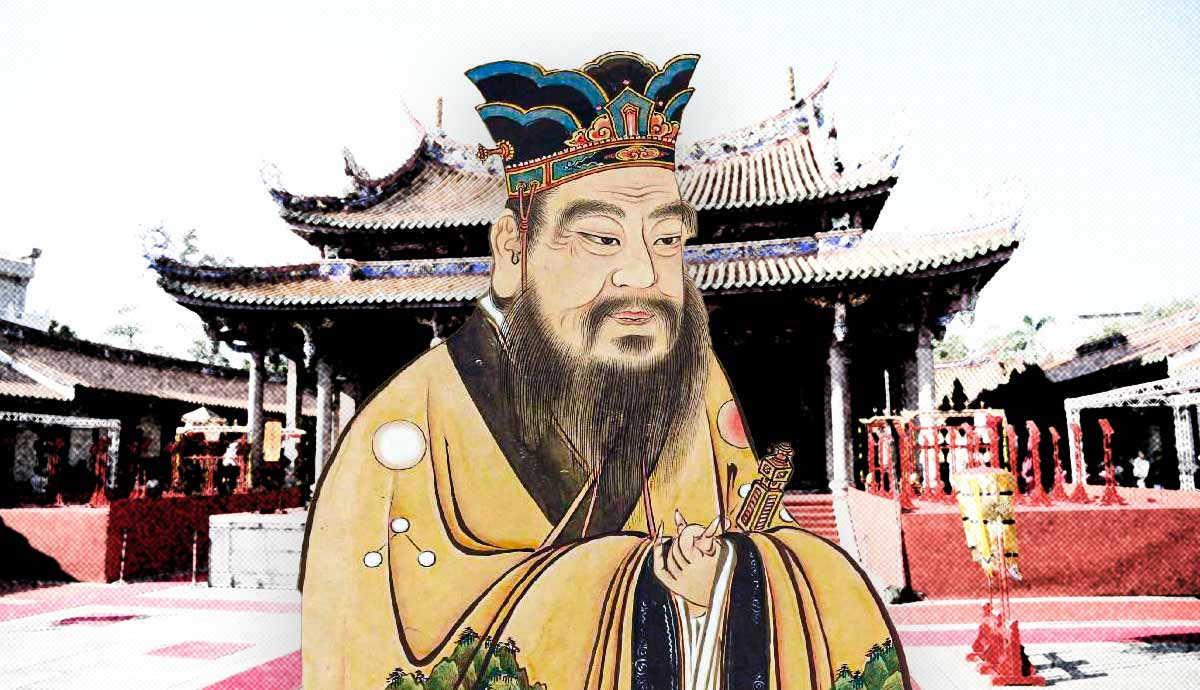
Today, brands dictate the way of life and behavior of consumers, influence their culture and scale of values, and form target audiences.
Every company needs practical methods that make it possible to shape the behavior of employees and customers. These can be childhood memories or rituals that create an atmosphere of trust and understanding, or even build a sense of community.
The goal of a brand is to influence people’s subconscious and thus awaken emotion, loyalty, and faith in the brand. So, why do people feel better when they wear brand pieces? Does wearing expensive clothes make them feel more confident? How do brands like Gucci, Chanel, Louis Vuitton, and others control people?
Understanding Luxury Brands

A luxury brand is a product, service, or experience that has a high perceived value because of its exclusivity and quality. These brands are associated with wealth and status, as well as a certain lifestyle.
For centuries, brands have been utilized to differentiate products from one another. Branding is an age-old practice, dating back to as early as 2000 BCE. At the time, merchants would use it to signify ownership of their goods and assets when selling in different markets. By using literal branding, these merchants were able to differentiate themselves from competitors and establish trust with customers.
Later, in the Renaissance period, branding took on a new meaning. Artists began to use symbols and images to distinguish themselves from others in the art world. These symbols and images were used to convey a message about the artist’s work, allowing customers to identify with the artist and their style.
Today, luxury brands use sophisticated marketing techniques to create powerful and lasting brand experiences. But what really drives people’s desire for luxury brands?
Luxury Brands and the Collective Unconscious: What’s the Connection?

According to Carl Jung, the collective unconscious of our culture is the social existence of the unconscious as the accumulator, custodian, and carrier of the genetically inherited experience of the phylogenetic development of humanity. Accordingly, the unconsciousness of typical individuals of a given culture manifests itself as a form and method of connection between inherited unconscious primary human prototypes.
The collective unconscious of a nation consists of a set of specific human experiences, which constantly accumulate and build new forms called archetypes. These archetypes are the expressions of specific ideas, values, and beliefs that people in a given culture share. It is such archetypes that underlie the concepts of brands and luxury goods. Brands use them to create associations in the collective unconscious that make people feel positive when they think about a particular brand.
For example, Gucci creates an image of high status and wealth. The designer’s visual language is expressed in its logo and monograms, which evoke loyalty and trust in the target audience. Chanel is associated with sophistication and elegance, while Louis Vuitton is associated with its luxury leather goods and the iconic LV monogram. These associations are based on what people in a given culture share in their collective unconscious. Thus, the perception of a brand is based on these shared archetypes and beliefs that the people in the culture hold about brands.
The ability of brands to draw on and create popular archetypes in the collective unconscious allows them to control and manipulate consumers. It is why people are so loyal to certain brands and why luxury brands have become a major part of our lives.
Emotions as the Basis for Buying Decision

In addition to archetypes, emotions also play a major role in how people perceive and act on brands. Emotions drive our decisions, and brands use them to their advantage.
For example, when we see a Chanel ad or Louis Vuitton store, the feeling of pleasure and status associated with the brand makes us want to be associated with it. By creating an emotional connection with their target audience, brands can tap into the human desire for meaning and belonging.
The emotional connection between brands and customers is not only created by ads or visual cues but also through customer service interactions and the quality of the product. Brands use this emotional connection to build loyalty and create a positive customer experience.
Yes, luxury brands have long been selling a person not only a material object but also emotions and a sense of self-identification. They have become powerful forces in today’s world by connecting to the collective unconscious and emotions. They hold an immense influence over our culture and perception of luxury. Their power can shape how people see themselves and the world around them.
Brands also create a shared experience that connects people across countries, continents, and generations. It is why expensive clothes make people feel more confident – it’s not just the material item they’re buying but also an emotional, cultural, and collective connection. And that is the real power of luxury brands.
The Rationality Behind Buying Brand Pieces

While emotions and archetypes play a major role in the buying decision, there is also a rational element. Customers want to purchase well-made items that will last a long time. It is why luxury brands have become so successful – because they produce products that are of exceptional quality and craftsmanship.
People are not always capable of making rational decisions. However, a mentally sound individual would act according to logic and reason, meaning they usually seek the most beneficial decision for themselves (particularly regarding their finances).
Despite popular belief, modern behavioral psychology studies have proven that humans don’t always act rationally. As evidence of this phenomenon, many people who purchase luxury items often find themselves unable to afford them due to high consumer debt rates.
While a reliable handbag can be acquired at an affordable price of around $50, some individuals instead choose to pay thousands for the same quality and functionality.
Are Luxury Goods Really of Higher Quality?

The answer to this question depends on how one chooses to interpret quality. From a psychological and philosophical perspective, luxury goods are of higher quality because they evoke a sense of belonging, an emotional connection, and a shared experience that connects people across cultures, which could be said to increase their value.
People often tend to overlook the drawbacks of a luxury product and instead focus on its positive aspects, which may explain this phenomenon. For example, Apple products have become a status symbol, despite their higher-than-average price tags and not unique technological superiority. This reputation has granted the company a loyal following willing to pay whatever is necessary to obtain their products.
Although many people think that non-luxury goods are of lower value just because they’re less expensive, this isn’t always the case. People may wrongly assume that higher-priced items are automatically better quality than their more budget-friendly counterparts without any evidence to back it up. In reality, they can get great products at an affordable price – if they know where to look!
Why Do People Feel Better Wearing Brand Pieces?

Ultimately, people feel better wearing brand pieces because they are more than just a material item – they represent an emotional and collective connection that the brand creates.
People who purchase luxury items are not just buying a product, but also an experience and a feeling of belonging. The power of luxury brands lies in their ability to tap into our unconscious and evoke emotions that make us feel connected and special.
Moreover, wearing brand pieces gives people a sense of control over their life and environment, which may lead to elevated self-esteem and confidence. For those who cannot find solace and significance in other areas of their life, these items often become a source of comfort and safety.
Oftentimes, when a person’s self-esteem is lacking, they may be hesitant to purchase luxury goods as the cost can be daunting. Nevertheless, selecting such items could bring about positive feelings of confidence and provide a sense of belonging for those individuals who lack self-esteem.
This is why expensive clothes can make people more confident – they offer a sense of control and social acceptance that cannot be acquired with cheaper alternatives.
Authenticity Is What Really Matters

Although fake Hermes bags may look identical to their authentic counterparts, most consumers would still opt for the real thing. After all, nothing compares to having a genuine luxury item in your possession—the value of which goes beyond physical appearance!
It may not make much sense: If we look to luxury goods as a way to gain attention and acceptance, why wouldn’t an imitation work just as well? However, the truth is a fake item could never measure up to its genuine counterpart in terms of authenticity and quality. It’s not just about the price tag—it’s about the craftsmanship and quality assurance that comes with a luxury item.
Still, for some people, the idea of being able to afford a luxury item is more important than actually owning an authentic one. For them, it’s about showing off and feeling accepted by their peers—which is why they are willing to forego quality and authenticity in favor of a cheaper, imitation version.
So, How Do Luxury Brands Control Us?

From a psychological and philosophical point of view, luxury brands have an incredible ability to control us. By creating emotional connections, they gain the power to influence our purchasing decisions and lifestyles. Brands offer us a sense of control over our lives and the environment, providing us with a sense of comfort and safety. And, by offering us superior craftsmanship and otherwise unavailable quality assurance, they create an aura of exclusivity and prestige.
Ultimately, luxury brands can be incredibly powerful when it comes to influencing consumer behavior. This is because they can tap into our primal emotions and create an unparalleled sense of belonging that might be difficult to obtain otherwise.
Although a consumer may not be financially capable of buying an item, they might still do so to get a sense of accomplishment from their hard-earned money or gain approval from others. Understanding luxury brands’ power and ability to control us psychologically can be important in making smarter purchasing decisions. By being aware of how luxury items make us feel, we can better evaluate whether those feelings are worth the cost.










